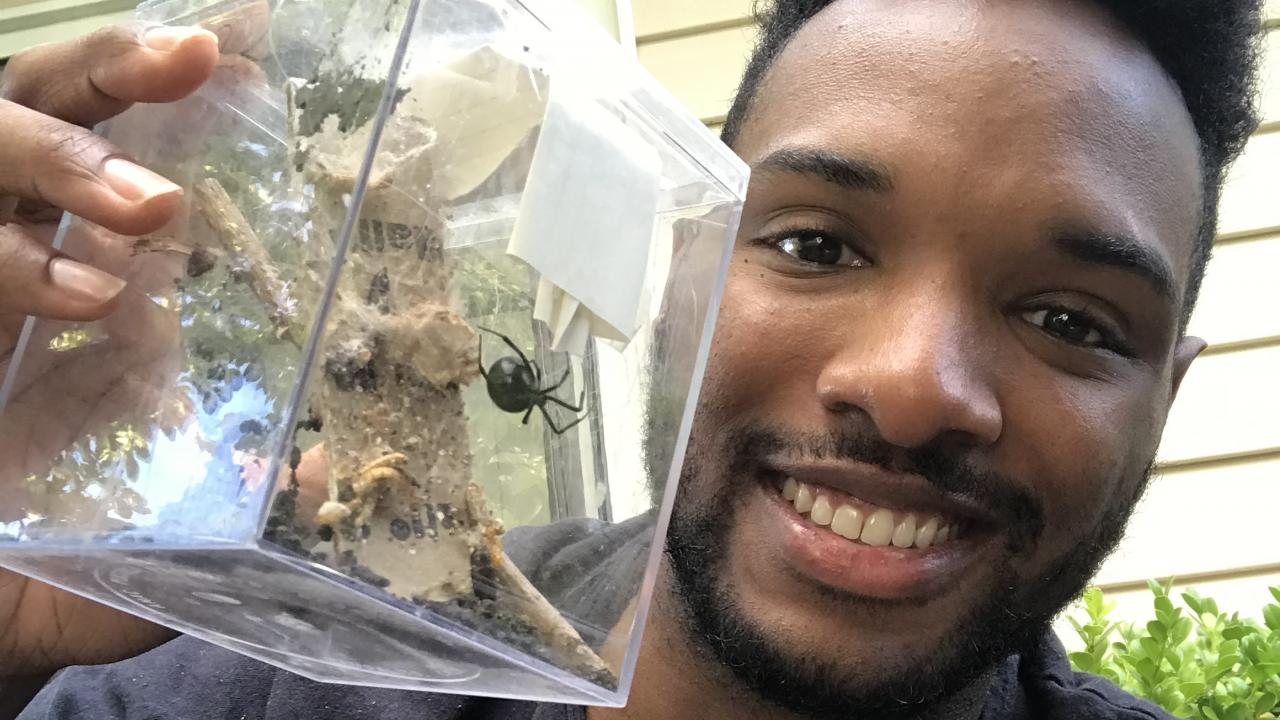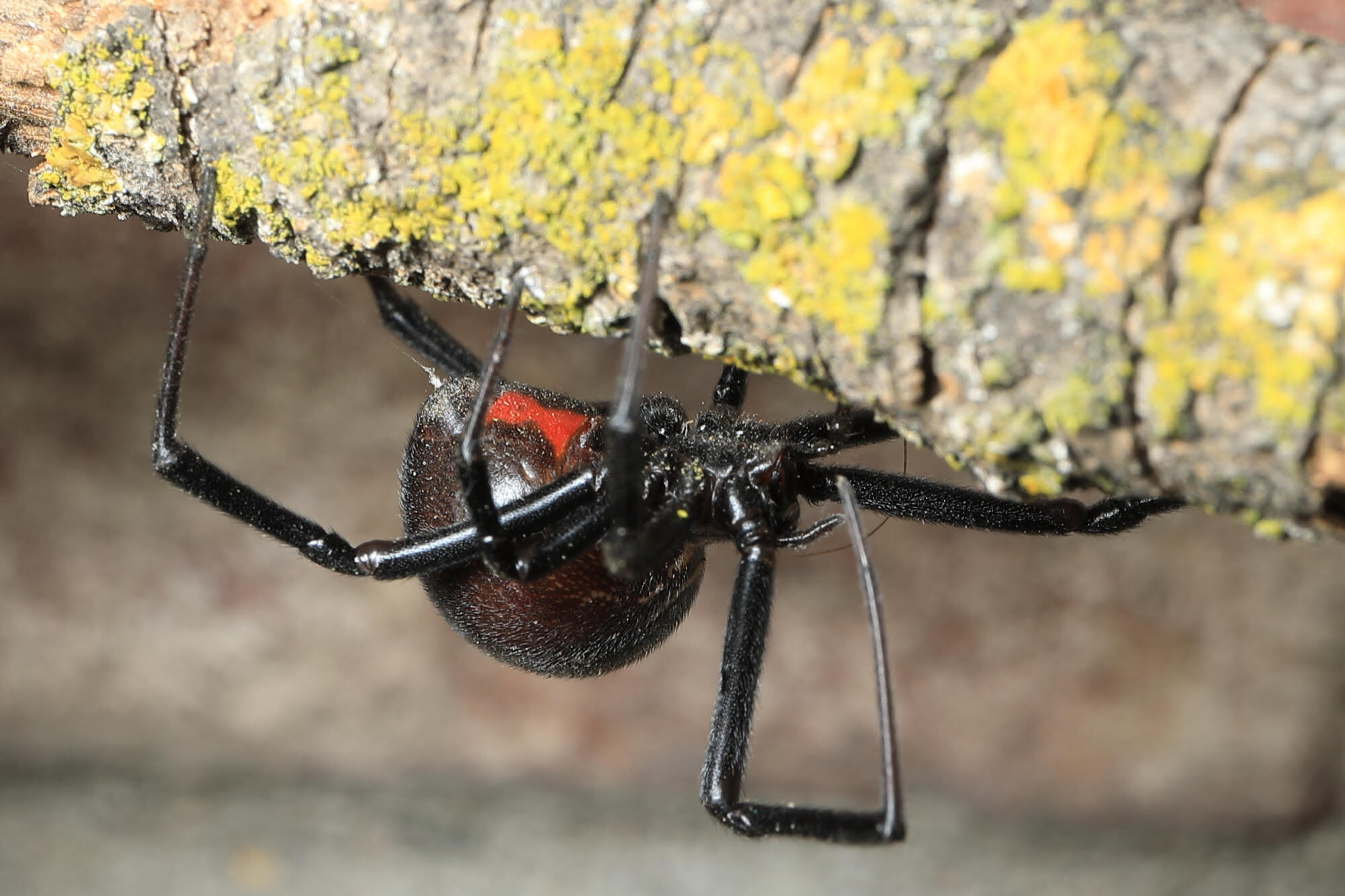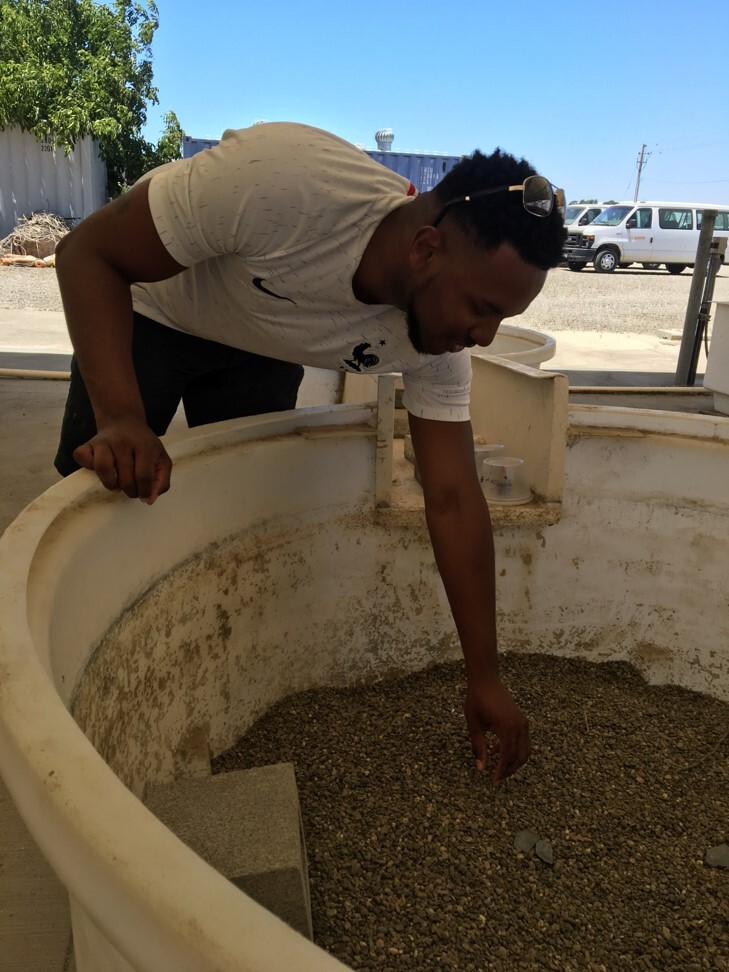
Dr. Cameron Jones Recounts His Work as a Behavioral Ecologist
Hidden among the aquariums and aviaries at the Center for Aquatic Biology and Aquaculture lies a room full of black widow spiders. Far from an arachnophobe, this lab is where Cameron Jones, a recent Ph.D. graduate in the Animal Behavior Graduate Group (ABGG), carried out his experiments on behavioral syndromes (also known as “animal personality”). Jones’ research, conducted under the guidance of Dr. Andy Sih, centers on how the individual personalities of native and invasive species affect their success in an urban environment.
To do this, Jones studied interactions between the native black widow spider (Latrodectus hesperus) and the invasive brown widow (Latrodectus geometricus), which have begun spreading across southern California. Although many may consider the black widow a dangerous pest, these spiders are a native species under threat from invasives. By studying these spiders both in the field and in the lab, Jones discovered how behavioral types - or personalities - in each species contributed to these interactions. Jones was awarded a prestigious National Science Foundation Graduate Research Fellowship in support of this work in 2016.

In his dissertation Jones found that in the wild, brown widows appear to avoid black widows, but when they do live near black widows, they build higher web “retreats” and tend to show more aggressive behaviors. This aggression may facilitate invasive avoidance of native species, which ultimately influences the interaction of the two spiders where they overlap. These findings shed light on how variation in individual animals’ behavior can affect a community’s composition, especially relevant in a changing world where species are constantly coming into new contact due to human impacts.
Before starting at UC Davis, Jones was conducting research on huntsman spiders with Dr. Linda Rayor as an undergraduate at Cornell University. However, Jones had been studying spiders and insects long before joining Rayor’s lab. While growing up in Vallejo, Jones’ entomological interests were encouraged by his uncle (who also doubled as his field assistant during research). Returning to Davis brought Jones closer to home, family, and the community of invertebrate species he had been fascinated with as a child.

Biology and Aquaculture. Photo courtesy of Cameron Jones, taken by A. Munson.
To conduct his independent research, Jones established his own field sites across urban areas in California, ranging from Riverside to Davis. He assessed web types, species distributions and abundances, and collected individuals to observe in the lab. This involved searching for webs in the evenings - when spiders are most active - in eaves, tunnels, and even among the undercarriages of long-parked cars. However, Jones' field work was made more dangerous solely because of the color of his skin. “I would first always go to the local [police department] and record my [conversation] with them when doing urban ecology,” Jones shared on Twitter, “Not because it would save my life… but maybe my family would have some sort of evidence should something tragic happen. This is our reality of being black in America”.
Despite this, Jones remains hopeful about the potential for progress in academia and beyond. “I really value the support I received from ABGG faculty and students. I felt as though there was a genuine effort to try and make a safe space for minoritized students,” Jones says, “And now, more than ever, I'm seeing both collective outrage at what has been happening for far too long in America and overwhelming support from non-Black Americans that are fighting for change. I encourage that we don't grow weary in this long fight to end systemic injustice and that we continue to uplift and listen to one another.”
To learn more about how to combat and eliminate systemic, institutionalized racism, please visit UC Davis' Resources for Racial Trauma, created by the UC Davis Office of Diversity, Equity, and Inclusion.